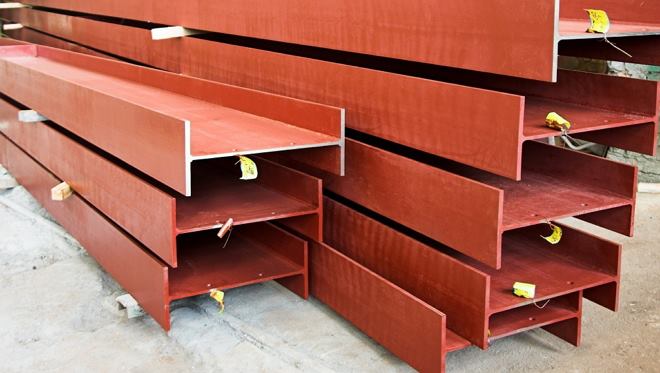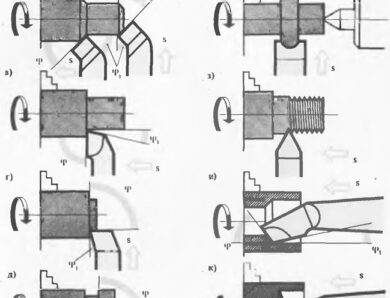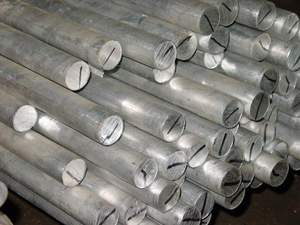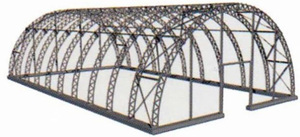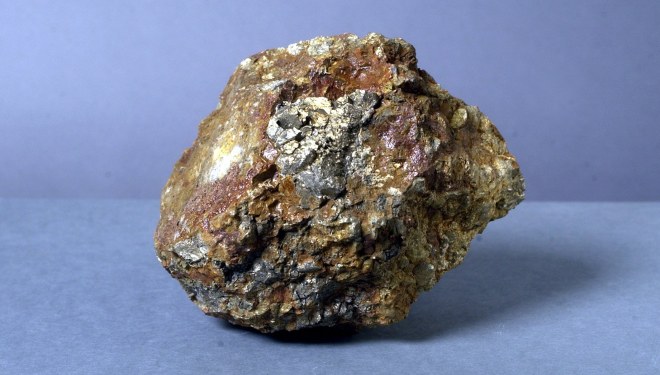
Properties of copper, its receipt and scope
Properties of copper, which occurs in nature in the form of fairly large nuggets, people have studied since ancient times, when dishes were made of this metal and its alloys, weapons, decorations, various household products. Active use of this metal for many years is due not only to its special properties, but also ease of processing. Copper, which is present in the ore in the form of carbonates and oxides, fairly easy to recover, as our ancient ancestors learned to do.

Copper ingot
Interesting about copper
At first, the process of restoring this metal looked very primitive: copper ore was simply heated on hearths, and then subjected to rapid cooling, which led to cracking of pieces of ore, from which it was already possible to extract copper. Further development of technology has led to this, that the fire began to blow air: this increased the heating temperature of the ore. Then the ore was heated in special structures, which became the first prototypes of mine furnaces.
About that, that copper has been used by mankind since ancient times, archaeological finds indicate, as a result of which products from this metal were found. Historians have established, that the first copper products appeared in 10 millennium BC. is., and most actively it began to be extracted, recyclable and used through 8-10 thousands of years. Naturally, prerequisites for such active use of this metal were not only the relative ease of obtaining it from ore, but also its unique properties: specific weight, density, magnetic properties, electric, as well as specific conductivity, etc..
Nowadays, it is difficult to find copper in nature in the form of nuggets, it is usually extracted from ore, which is divided into the following types.
- Bournite - in such ore copper can be contained in quantity to 65%.
- Chalcosine, which is also called copper luster. Such copper ore may contain up to 80%.
- Copper pyrite, also called chalcopyrite (hold up 30%).
- Covellin (hold up 64%).
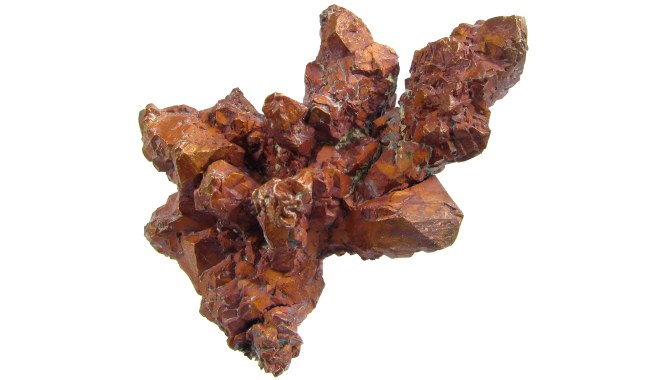
Chalcopyrite
Copper can also be extracted from many other minerals (malachite, cuprite, etc.). They contain it in various quantities.
Physical properties
Pure copper is a metal, the color of which can vary from pink to red.
Radius of copper ions, having a positive charge, can take the following values:
- if the coordination indicator corresponds to 6 - to 0,091 nm;
- if this figure corresponds 2 - to 0,06 nm.
The radius of the copper atom is 0,128 nm, it is also characterized by an affinity for the electron, equal to 1,8 ev. When ionizing an atom, this value can take values from 7,726 to 82,7 ev.
Copper is a transition metal, the electronegativity of which is 1,9 units on the Pauling scale. exept this, its oxidation state can take different values. At temperatures, in the interval 20-100 degrees, its thermal conductivity is 394 W / m * K. Electrical conductivity of copper, which is surpassed only by silver, is in the range of 55.5–58 MSm / m
Since copper in the potential range is to the right of hydrogen, it cannot displace this element from water and various acids. Its crystal lattice has a cubic face-centered type, its magnitude is 0,36150 nm. Copper melts at temperature 1083 degrees, and its boiling point - 26570. The physical properties of copper are determined by its density, which is 8,92 g / cm3.
![]() Native copper
Native copper
Of its mechanical properties and physical characteristics should also be noted the following:
- linear thermal expansion - 0,00000017 units;
- tensile strength, to which copper products correspond when stretched, is 22 kgf / mm2;
- the Brinell scale of copper corresponds to the value 35 kgf / mm2;
- specific weight 8,94 g / cm3;
- the modulus of elasticity is 132000 Mn / m2;
- the value of relative elongation is equal to 60%.
The magnetic properties of this metal can be considered absolutely unique, which is completely diamagnetic. It is these properties, along with physical parameters: specific weight, specific conductivity and others, fully explain the wide demand for this metal in the manufacture of electrical products. Aluminum has similar properties, which is also successfully used in the manufacture of various electrical products: wires, cables, etc.
The main part of the characteristics, which has copper, it is almost impossible to change, except for the tensile strength. This property can be improved almost twice (to 420-450 MN / m2), if you perform such a technological operation, as slander.
Chemical properties
The chemical properties of copper are determined by that, what position it occupies in the periodic table, where it has a serial number 29 and is located in the fourth period. What is remarkable, it is in the same group with precious metals. This once again confirms the uniqueness of its chemical properties, which should be described in more detail.
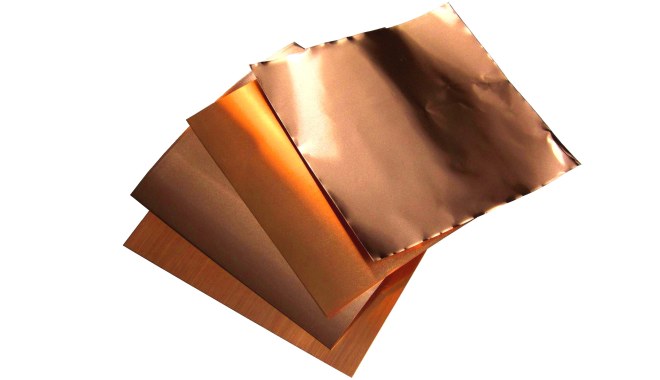
Shades of copper alloys
In conditions of low humidity, copper shows almost no chemical activity. Everything changes, if the product is placed in conditions, characterized by high humidity and high carbon dioxide content. Under such conditions, active oxidation of copper begins: a greenish film is formed on its surface, consisting of Cuco 3, With(OH)2 and various sulfur compounds. Such a film, which is called patina, performs an important function of protecting the metal from further destruction.
Oxidation begins to occur actively even then, when the product is exposed to heat. If the metal is heated to temperature 375 degrees, then copper oxide is formed on its surface, if higher (375-1100 degrees) - then two-ball scale.
Copper reacts quite easily with the elements, which belong to the group of halogens. If the metal is placed in sulfur vapor, then it will ignite. Selenium also shows a high degree of kinship. Copper does not react with nitrogen, carbon and hydrogen even in high temperatures.
The interaction of copper oxide with various substances deserves attention. So, when it interacts with sulfuric acid, sulfate and pure copper are formed, with hydrobromic and hydroiodic acid - copper bromide and iodide.
Reactions of copper oxide with alkalis look different, as a result of which cuprate is formed. Getting copper, in which the metal is restored to the free state, carried out using carbon monoxide, ammonia, methane and other materials.
Copper in interaction with a solution of iron salts turns into a solution, while iron is restored. This reaction is used for that, to remove the sprayed copper layer from various products.
One - and divalent copper is able to form complex compounds, characterized by high resistance. Such compounds are double salts of copper and ammonia mixtures. Both have been widely used in various industries.
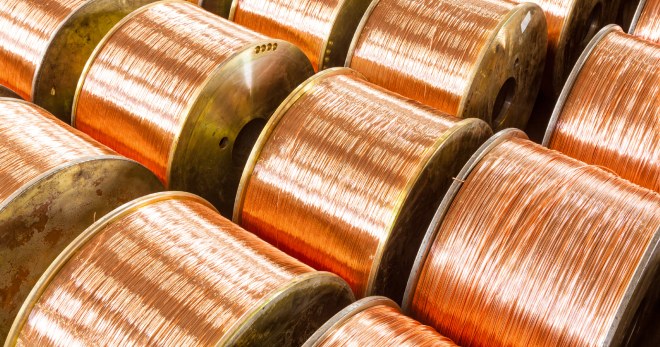
Copper wire bays
Areas of application of copper
The use of copper, as well as the most similar to it in its properties of aluminum, It is well known that this is the production of cable products. Copper wires and cables, characterized by low electrical resistance and special magnetic properties. Types of copper are used for the production of cable products, characterized by high purity. If you add even a small amount of foreign metal impurities to its composition, example, total 0,02% aluminum, then the electrical conductivity of the source metal will decrease by 8-10%.
Low weight of copper and its high strength, а також здатність піддаватися різним видам механічної обробки — це ті властивості міді, which allow to make pipes from it, successfully used for gas transportation, hot and cold water, pair. It is no coincidence that such pipes are used in the engineering communications of residential and office buildings in most European countries..
Copper, in addition to extremely high electrical conductivity, has the ability to conduct heat well. Завдяки цій властивості міді вона успішно використовується в складі наступних систем:
- heat pipes;
- coolers, used to cool the elements of personal computers;
- air heating and cooling systems;
- systems, providing heat redistribution in different devices (heat exchangers).
Metal structures, in which copper elements are used, differing not only in light weight, but also exceptional decorativeness. This is the reason for their active use in architecture, as well as to create various interior elements.

